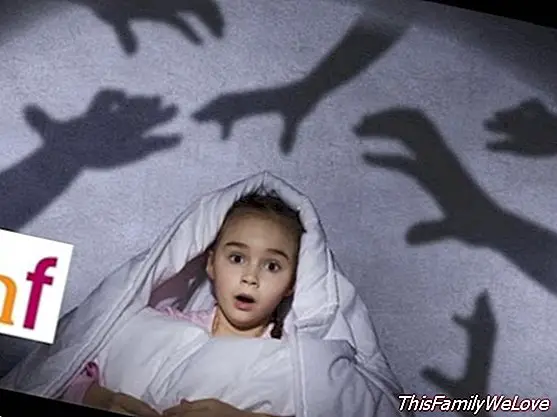Nightmares and night terrors in children
Nightmares are a bad dream about an imagined danger or threat. Nightmares and night terrors in children commonly occur during REM sleep. This stage of the dream alternates every 100 minutes, so it usually happens in the middle of the night or at dawn. There are different factors that cause predisposition to suffer nightmares and night terrors in children during sleep and are more common between 3 and 5 years.
Causes of nightmares and night terrors between 3 and 5 years
Nightmares and night terrors of children are especially common between 3 and 5 years of age. Some of the factors that influence nightmares are being too tired, having irregular sleep routines, suffering from stress, having a fever, taking medications that interrupt REM sleep, or being in a situation of vital change.
However, the reason why there is a propensity to experience nightmares during sleep between 3 and 5 years is due to:
 Loading the video ....
Loading the video ....- To the neuronal development of these ages. The neuronal connections responsible for the auditory system, the tactile sensations and the visual system reach a state of adult maturation. In this way, dreams suddenly become more vivid, both good and bad.
- To linguistic development experienced by children between 3 and 5 years old. In this stage they undergo a striking transformation, increasing their vocabulary in around 8,000 words and learning grammar rules. It is believed that this neuronal hyper-activation can be a stressor that gives rise to nightmares.
- Learning and distinction between reality and fantasy. By not having these notions yet established, children can wake up with a strong sense that the dream has happened in real life.
How can nightmares and night terrors be prevented in children?
1. Avoid watching programs, movies and stories that scare them. It is a first step to prevent them from dreaming after what they have been exposed to. The nightmares of children can have multiple origins, one of them is to see images or listen to stories that generate anxiety or fear, even if we do not understand exactly why.
2. Prevents children from going to bed altered. This reduces the risk of having nightmares. Being over-excited or upset when going to sleep predisposes our brain to activate more power during the phases of REM sleep.
3 Try a quiet environment at home and stress-free. Children are very susceptible to the environment in which they live. If you notice tension in the home, they will be tense and stressed and most likely this will manifest in bad dreams.
4. Take care of the children's routine and sleep hours. It is also an effective way to prevent them from having nightmares.
Marisol New




